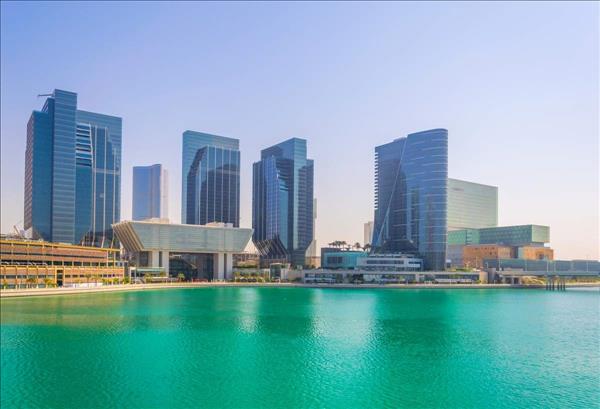
Incentives galore in Abu Dhabi property
Faisal Durrani, head of research at Cluttons, said: "The nervousness we have been reporting on for almost three years is well entrenched in the market at present. Weaker economic growth has taken a toll on the hydrocarbon sector in particular, which has been a key driver of demand in the residential and commercial markets in the emirate historically.
"Saying that, we are seeing some positives emerge that may help to boost economic growth, including the recent announcement by Adnoc to invest $109 billion in its gas downstream growth strategy over the next five years. This will likely filter through to the UAE capital's real estate market in the form of fresh demand for residential and commercial property. However, in the short term, we anticipate that both tenants and buyers will continue to err on the side of caution."The rental market has been relatively more buoyant than the sales market, with higher levels of activity compared to this time last year. A lot of demand stems from households relocating to make savings and to take advantage of incentives being offered by landlords. These include the accepting of rental payments through multiple cheques, as well as a growing number of landlords who are willing to pay agency fees, which is often up to five per cent of the annual agreed rent.
Edward Carnegy, head of Cluttons Abu Dhabi, said: "With household finances under pressure due to a reduction in housing allowances, the removal of various subsidies and the impending introduction of VAT in January 2018, tenants are focused on value for money, as well as quality."Cluttons says the rate of decline in rents across the city's residential investment areas slowed to -1.8 per cent in Q3, from -3.6 per cent in Q2. The annual rate of change has slipped to -11.8 per cent.
In the sales market, Cluttons indicates that residential capital values across investment areas declined by 0.4 per cent in the three months to the end of September, leaving them just shy of Dh1,150 psf, a level not seen since early 2014. Overall, house prices are now 4.1 per cent below where they were at the same time last year.Carnegy added: "Due to the sustained drop in demand, we have seen developers respond by offering attractive payment plans, as well as bringing residential developments through that are far more affordable than what we have seen previously. Water's Edge by Aldar, for instance, has been a runaway success, with the Yas Island scheme netting the developer some Dh800 million through off-plan sales of all units."Cluttons previously forecasted rents to end 2017 eight per cent to 10 per cent down on 2016 across Abu Dhabi's freehold residential investment areas.
"Given the range of complex factors hindering the market's ability to turn around, rents are now expected to end the year 10 per cent to 12 per cent lower than the end of 2016. 2018 is likely to see rents slipping further in the region of five per cent to seven per cent, unless there is a notable rebounding in economic growth, which would have to be underpinned by a turnaround in oil prices, which appears unlikely at this stage," explained Durrani.-

Legal Disclaimer:
MENAFN provides the
information “as is” without warranty of any kind. We do not accept
any responsibility or liability for the accuracy, content, images,
videos, licenses, completeness, legality, or reliability of the information
contained in this article. If you have any complaints or copyright
issues related to this article, kindly contact the provider above.

















Comments
No comment